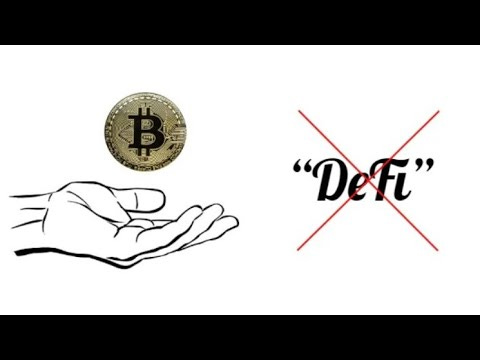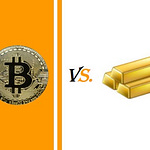Dear Readers,
If there’s one thing I’ve learned over the past few weeks, it’s that bear markets provide ample opportunities for Bitcoin users to learn the importance of custodying their own funds. The significance of this lesson cannot be overstated. Bitcoin transactions are irreversible. If you leave your Bitcoin in someone else’s hands, you’re at their mercy if you ever hope to get them back.
A large part of Bitcoin’s irreversibility stems from its decentralization. No centralized service exists to micromanage the blockchain, whether for your benefit or its own. While that means no authority can help recover errant Bitcoin, it also means that Bitcoin can’t be taken away unless users allow it through their own (arguably poor) choices.
Bitcoiners received another lesson on the need to self-custody their Bitcoin, but admittedly it came from an unexpected source: Solana-based DeFi.
Don’t DeFi Unless It’s Actually Decentralized
This is a Bitcoin newsletter, so I’ll spare you the nitty gritty details about Solana and DeFi. Suffice it to say that Solana is a smart-contract focused altcoin blockchain that has come under fire for claiming to be decentralized while also coordinating network restarts and publishing press releases.
The recent development within a Solana DeFi protocol certainly won’t assuage concerns about the blockchain’s decentralization, although in reality it reflects more poorly on the protocol itself rather than the Solana blockchain. In a bit of poor press for the protocol, it came to light that the team and DAO supporting it made the questionable decision to seize funds belonging to an extremely wealthy user in order to liquidate part of the user’s position and ease pressure on the protocol and its other users.
Alarm bells should probably be going off in your head if they aren’t already. Imagine depositing your life savings, large or small, to a protocol or platform, and then the rest of the user base voted to confiscate your assets in order to protect themselves. That level of control over individuals’ finances is reminiscent of the traditional financial system we’ve suffered under for decades. And it simply shouldn’t exist, especially on a platform that bills itself as “decentralized”. But that risk will always exist when users entrust their funds to someone else.
PSA: Bitcoin Is The Original DeFi
No, I’m not referring to how DeFi protocols are now being built on top of the Bitcoin sidechains and layer-2 solutions. Although, those protocols may be arguably better by default if for no other reason than that they use Bitcoin rather than another currency as their monetary unit (i.e., given Bitcoin’s supremacy as a currency).
DeFi, or “decentralized finance”, attempts to recreate traditional financial services without relying on intermediaries like banks and governments.
Sound familiar? It should. Bitcoin allows for a variety of financial use cases like wealth preservation, remittances, exchanges for goods and services, and more. On top of that, Bitcoin is actually decentralized. There’s no central party behind the blockchain coordinating mining or issuing press releases. No biased arbiter enforcing its will upon you and seizing your funds. No central intermediary to extract its fees from unsuspecting users.
I’d venture to say that Bitcoin users have more reasons to be confident about their financial self-sovereignty than users of any other currency, altcoins included. Nothing comes close to Bitcoin in terms of decentralization. In other words, nothing is more DeFi than Bitcoin.
Are You Researching Self-Custody Yet?
I’m probably risking repeating myself too many times. But as I said before, bear markets are chock full of examples of why anything but self-custody is riskier business than you may realize.
Sure, perhaps you’ve skirted the issue so far and haven’t lost any of your Bitcoin to the large number of hacks, seizures, and outright scams that have been perpetrated against Bitcoin users over the years. But are you confident that you’ll successfully do so for years or decades? And are you certain that you’re willing to risk being wrong?
If not, it’s never too late to start looking into self-custody to see what’s best for you and your specific situation. I have high hopes for your journey.
Read the next article in this series:
Like what you see, but not a subscriber yet?
Consider subscribing for two weekly emails about Bitcoin, subscriber giveaways, real-time community discussions and more!
A Special Bonus For Premium Members
Don’t forget that premium subscribers to HiFi Bitcoin get exclusive access to premium educational resources at no extra charge.
Wish You Could Easily Take The Podcast With You?
Can’t Get Enough Bitcoin In Your Life? Follow Me On Social Media:
🙋🏽♂️Did You Enjoy This Edition Of The HiFi Bitcoin Letters?
This 3-question survey is your chance to tell me how I can improve the newsletter for you.
This is not financial or business advice. This newsletter and related content are for informational purposes only. Cryptocurrencies and digital assets can be risky. Always do your own research before making any sort of investment.












